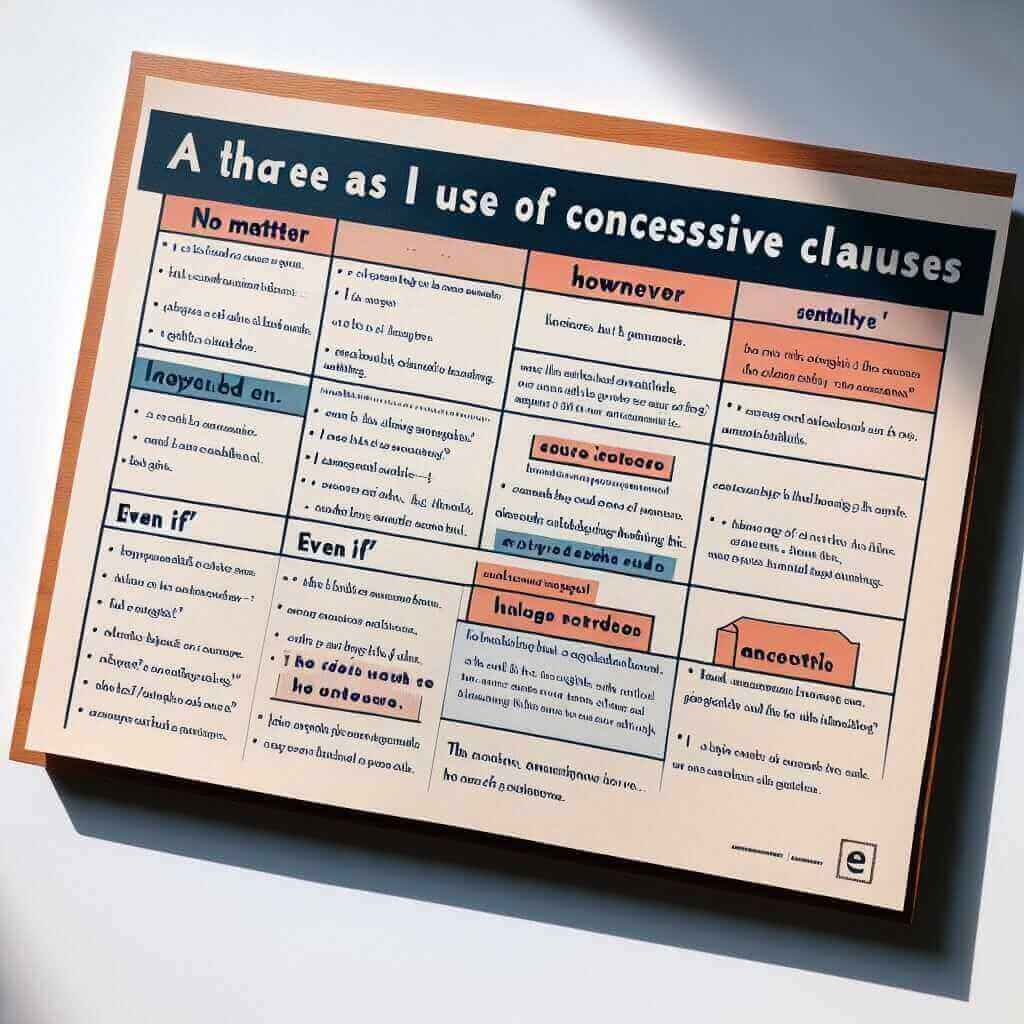Have you ever encountered situations where the outcome seems inevitable, regardless of your efforts? We often express this frustration using phrases like “no matter how you try, it won’t work.” This structure, known as a concessive clause, is a powerful tool for conveying contrast and highlighting the futility of an action. Mastering this grammatical structure can significantly enhance your IELTS writing and speaking scores by adding sophistication and nuance to your language.
Let’s look at some examples of how concessive clauses can be used in different sections of the IELTS exam:
Speaking Part 3:
- “No matter how hard I try to save money, it seems like there’s always an unexpected expense.” (This demonstrates your ability to express complex ideas and connect them to personal experiences.)
Writing Task 2:
- “Some argue that however much governments invest in renewable energy, fossil fuels will remain the dominant energy source for the foreseeable future.” (Here, you acknowledge a contrasting viewpoint while presenting your own.)
Listening Section 2:
- You might hear a speaker say, “No matter how many times I explain the instructions, some people still struggle to follow them.” (This helps you understand the speaker’s frustration and the context of the situation.)
Understanding Concessive Clauses and Their Significance in IELTS
Concessive clauses allow you to express an idea that contrasts with the main clause, indicating that the main clause remains true despite this contrast. In simpler terms, you’re saying that something will happen (or won’t happen) regardless of another action or circumstance. This ability to show complex relationships between ideas is crucial for achieving a higher band score in IELTS.
These clauses often appear in the IELTS exam, especially in tasks requiring you to:
- Present and contrast different viewpoints (Writing Task 2)
- Describe challenging or frustrating situations (Speaking Part 2 & 3)
- Analyze and interpret complex information (Listening and Reading)

Structure and Usage of Concessive Clauses
Here’s a breakdown of the common structures used to form concessive clauses:
1. “No matter how/what/where/when/who” + adjective/adverb + subject + verb:
- No matter how hard you study, you won’t pass without understanding the concepts.
- No matter what you say, I won’t change my mind.
- No matter where you go, you can always find beauty in the world.
2. “However” + adjective/adverb + subject + verb:
- However much money you have, it can’t buy happiness.
- However quickly you run, you won’t catch the train.
3. “Even if/though” + subject + verb:
- Even if you give up now, you’ll have learned something valuable.
- Even though it’s raining, we’ll still go for a walk.
Utilizing Concessive Clauses for a Band 7+ Score
Writing:
- Presenting balanced arguments: “While some people believe that technology simplifies our lives, others argue that it creates new challenges, no matter how convenient it may seem.”
- Illustrating a point with an example: “Many historical figures achieved greatness despite facing immense adversity. For instance, even though Helen Keller was deaf and blind, she became a renowned author and activist.”
Speaking:
- Adding complexity to your responses: “I find learning languages fascinating. No matter how difficult the grammar gets, there’s always a sense of accomplishment when you finally understand it.”
- Expressing opinions effectively: “I believe that traveling broadens your horizons. However expensive it may be, the experiences you gain are invaluable.”
Common Mistakes and How to Avoid Them
-
Incorrect word order: Ensure the subordinate clause (the concessive clause) doesn’t sound disjointed. For example, instead of “No matter how I try hard,” say “No matter how hard I try.”
-
Comma usage: Remember to separate the concessive clause with a comma when it comes before the main clause.
-
Overusing concessive clauses: While effective, using too many concessive clauses can make your writing sound repetitive. Vary your sentence structure for better flow.
Conclusion
Mastering concessive clauses empowers you to express complex relationships between ideas, adding sophistication and clarity to your language. By understanding their structure, usage, and common errors, you can incorporate them seamlessly into your IELTS writing and speaking, boosting your chances of achieving a higher band score. Remember to practice using them in various contexts to build fluency and confidence in your English communication skills.